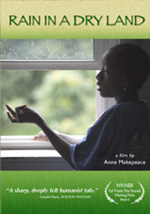One of the most publicized issues this summer has been the arguments on Capitol Hill over the debt ceiling. The political stalemates have been so much on the forefront of the public agenda that other dire issues, such as the famine in the Horn of Africa have been somewhat overshadowed. However, the two issues are linked more than one might initially think.
As most are aware at the end of the day on August 2nd, Congress finally came to an agreement on the debt ceiling debate which avoided the detrimental U.S. default. What is known about the agreement is that it cuts almost $1 trillion, however, what hasn’t been made immediately visible is the precise details of such cuts. We do know that important programs for the poor – throughout the globe – are at serious risk. It is also important to be aware of the appropriations bill that was passed by the House for the State Department and Foreign Assistance. Within this bill were cuts to the UN’s regular budget and UN peacekeeping. The simple truth is that if the bill is passed by Congress and signed into law, the UN will return to its previous state of cycles of debt. Cuts to the UN’s budget detrimentally impede the organization’s ability to aid in foreign catastrophes such as the current humanitarian crisis in the Eastern Horn of Africa – with Somalia suffering the most from the drought-induced famine.
In his op-ed, U.S. Representative Gerry Connolly of Virginia writes: ” “from terrorism to the threat of pandemics, the United States faces challenges that are beyond the power and financial means for any single nation, no matter how powerful, to address alone. Our contributions to the UN enhance our national security and our foreign policy priorities, save dollars while growing jobs and our economy and strengthen our leadership in the international community.” And as Massachusetts’ own US Senator, and ardent foreign relations advocate, John Kerry so eloquently put it, “We can either pay now to help brave people build a better, democratic future for themselves or we will certainly pay later with increased threats to our own national security…This is not time for America to pull back from the world. This is a time to step forward.”
The UN and the U.S. are currently making substantial efforts to help the about 11 million people directly affected by the famine. Efforts include:
- UNICEF is working to help over 250,000 children from Somalia who are suffering from acute malnutrition. They have already provided 8,300 bags of nutritional supplies to 2,800 children. The goal is to reach 70,000 children within the next six months and to provide them with nutrition and water.
- As of late, World Food Programme is reaching 1.5 million people in Somalia and is scaling up to reach an additional 2.2. million in the previously inaccessible south of the country. Airlifts to Mogadishu began earlier in the month to bring special nutritious foods to malnourished children.
- UNHCR – through its partners – has delivered emergency assistance packages to benefit 15,000 internally displaced persons in Somali camps. The organization plans to distribute 7.500 additional packages in the upcoming weeks.
The U.S. is currently the largest donor to the UN and to the relief in the Horn of Africa – what will happen if important funds are cut from such initiatives? It’s important that we stay engaged and involved in the coming months in order to demonstrate to our representatives in Capitol Hill just how important our international commitments are.
That is why we hope you will join UNA-GB and our fellow chapters around the country in engaging in dialogue with our elected officials this fall. We will be in touch with ways to take action and specific asks that will be good to make, especially when your representatives are on fall recess. Email us at [email protected] if you’d like to be involved more in depth on these advocacy efforts.
 Also, if you want to learn more about the crisis in the Horn of Africa and what we can do to make a difference, on September 12th UNA-GB is co-sponsoring the DocYard’s screening of Rain in a Dry Land, a film which provides an eye-opening look at what it means to be a refugee in today’s “global village.” Purchasing tickets to view the film, which chronicles the lives of two Somali Bantu families, is a great way to get educated more on what refugees face in the transition process. There will also be information shared about how you can help end the famine crisis in Somalia and the Horn of Africa.
Also, if you want to learn more about the crisis in the Horn of Africa and what we can do to make a difference, on September 12th UNA-GB is co-sponsoring the DocYard’s screening of Rain in a Dry Land, a film which provides an eye-opening look at what it means to be a refugee in today’s “global village.” Purchasing tickets to view the film, which chronicles the lives of two Somali Bantu families, is a great way to get educated more on what refugees face in the transition process. There will also be information shared about how you can help end the famine crisis in Somalia and the Horn of Africa.
-Alexandra